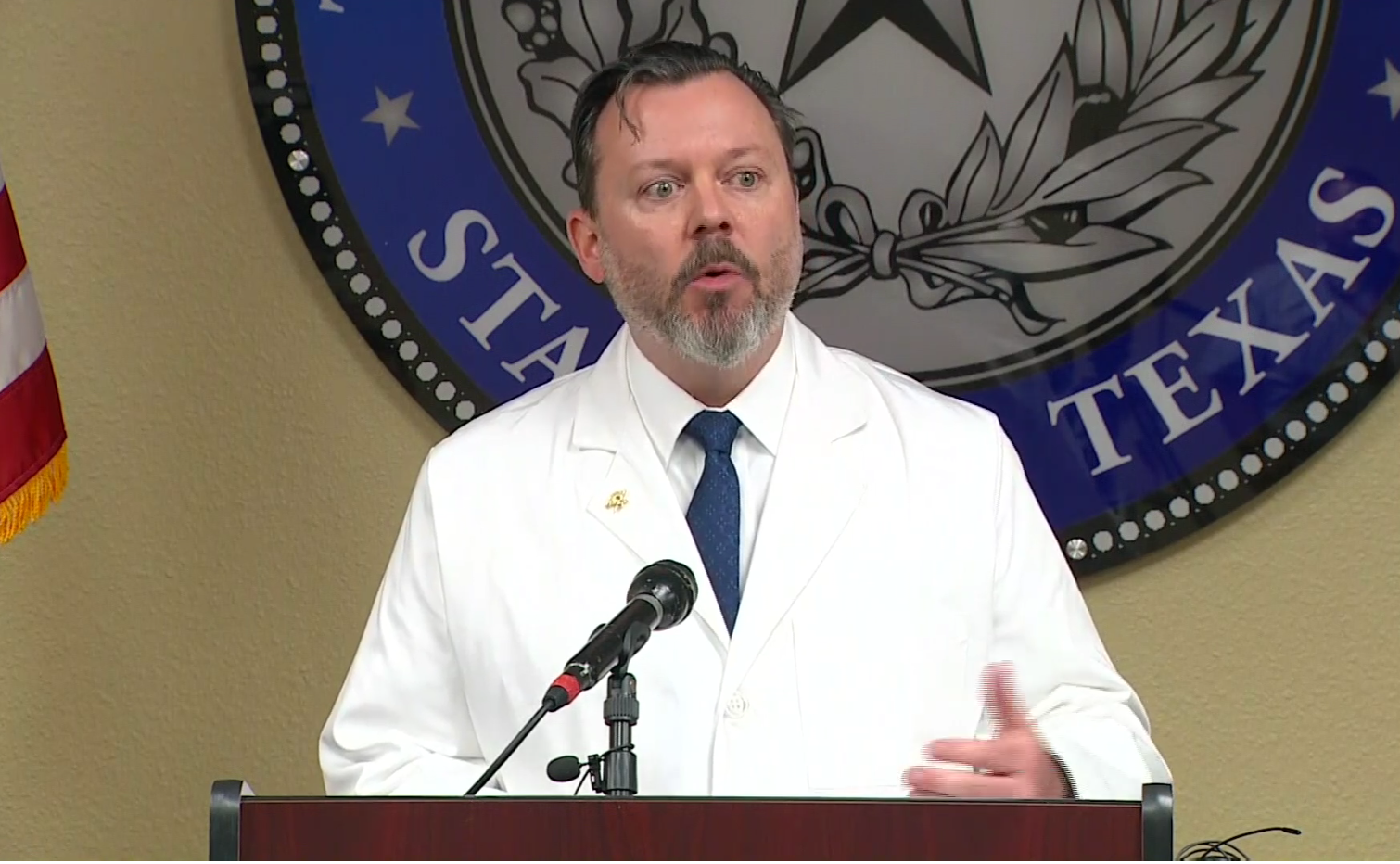Baylor Scott & White’s Dr. Mark Casanova was one of 43,538 patients to be part of the Pfizer and BioNTech COVID-19 vaccine trial, which was 90 percent effective in preventing the virus according to results released this week.
Baylor University Medical Center was one of the trial sites. Casanova, who is president of the Dallas County Medical Society and a palliative care doctor at Baylor, was one of the 500 or so to participate with the health system. He wasn’t one of the first individuals to jump into the trial but eventually joined when he heard there were still slots for more participants. Casanova sees it as his duty to help build medical knowledge in whatever way he can. “Anything that we can do to help advance our understanding, and certainly to have a vaccine, many of us were excited to partake in,” he says.
Pfizer is one of several companies developing vaccines around the world. Because of the pandemic’s uniquely debilitating nature, all of them will be needed if the virus is to be stopped. Pfizer says it will produce 50 million doses by the end of the year, and 1.3 billion doses next year.
The Pfizer vaccine involves two shots taken three weeks apart. Casanova says the first shot, which is merely an introduction that allows the body to get used to the messenger so the immune system can start developing antibodies, had nearly no impact. He said there was some soreness where the injection happened, but other than that, he thought he had received the placebo; he had no symptoms.
Three weeks later, when he received the second shot, he was sure that it was the vaccine. The second shot is a booster, which allows the immune system to kick into action, creating antibodies. The response was noticeable but didn’t last long. He experienced flu-like symptoms, with some chills as he went to bed. By 3 a.m., the symptoms were gone.
It should be noted, the vaccine is not introducing the virus to the system, and the symptoms are just the immune system doing what it is supposed to do.
“It’s a good sign of your immune system ramping up a response and going to work with mounting those antibodies,” Casanova says.
With mounting reports about patients reacquiring the virus after already having it and rising case numbers and hospitalizations worldwide, herd immunity looks like an increasingly risky decision. Case numbers are growing just as models projected them to do, and now about two weeks after Halloween, where many did not maintain social distance or avoid large crowds, cases are spiking. Dallas County reported over 1,401 new cases on Tuesday, a record for the entire pandemic.
While the statistics show that younger and healthier individuals are less likely to become sick, each individual’s results are unpredictable. There are numerous reports of younger patients without pre-existing conditions becoming extremely ill or even dying. “The rationale is that if you get a vaccine, you might feel a little cruddy, but you’re not getting the virus,” Casanova says. “To approach it as, ‘Well, I’ll just get the virus so I can get antibodies’ is playing Russian roulette.”
The vaccine provides a safe way to obtain the antibodies without risking sickness or infecting others who may be more vulnerable, the doctor says. “Statistics are applied to large groups of individuals, but what happens to the individual is unpredictable,” he says. “This notion of, ‘Let’s just all get the virus and we’ll have herd immunity’ is dangerous in a multitude of ways.”
One unknown is how long the vaccine will last relative to the antibodies produced from getting the disease. Without time and mass vaccination, it will be challenging to determine how long the vaccine prevents the virus. Other coronaviruses have not been vanquished with just one vaccination, and after a year, patients may need to get a booster shot to continue their immunity.
“That’s an unanswered question that the researchers will be looking at,” Casanova says.






